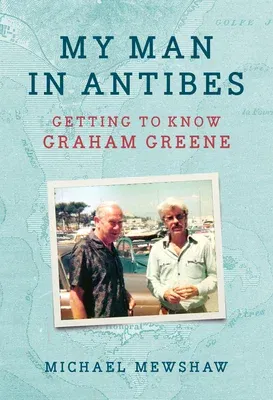When a writer tracks down his literary hero, Graham Greene, who is
living quietly on the shores of the Mediterranean, the author finds his
new friend is every bit as complex as the fiction he's famous for.
While living in southern France in 1972, Michael Mewshaw engineered a
meeting with Graham Greene. Mewshaw was an ambitious young journalist
and novelist, Greene was an internationally revered elder statesman of
letters. The pair became fast friends and corresponded for the next
twenty years. My Man in Antibes is an intimate portrait of what it
was like to eat, drink, and gossip with one of the most revered--and
complicated--authors of the twentieth century.
Growing up Catholic with literary aspirations, Mewshaw believed Greene
was the author to emulate. Not only did Greene demonstrate how religious
belief and church dogma could be subjects for fiction, he also wrote
murder mysteries and political thrillers where his characters' inner
conflicts played out dramatically in exotic settings. Under Greene's
sway, Mewshaw traveled through Mexico like the whiskey priest in
Greene's The Power and the Glory and honeymooned at the Hotel
Oloffson in Haiti, the setting of The Comedians.
When Mewshaw tracked down Greene in Antibes, he found the author was far
from a reclusive, close-mouthed figure: Greene garrulously recounted
tales about the many women in his life--and husbands of those women--as
well as his extraordinary interviews with political figures such as
Fidel Castro and Ho Chi Minh. Over the next two decades, Mewshaw and
Greene ate meals together, discussed their travels, and talked about
writers they knew in common, such as Anthony Burgess, Shirley Hazzard,
and Gore Vidal.
While young Mewshaw looked up to the world-weary Greene, their
relationship was never simply that of mentor and mentee. My Man in
Antibes bristles with misunderstandings, arguments, and one young
writer's desire to get to know a legendary older writer who, in many
ways, actively sought to remain unknowable.

